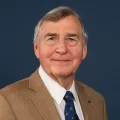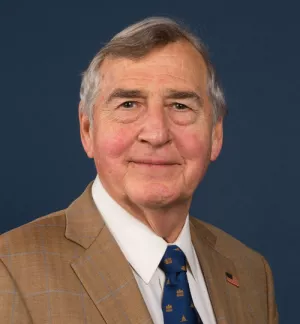It has long been accepted wisdom that Americans “don’t know much about history, don’t know much geography”— to recall the words of a golden oldie. So most folks managing, covering, or watching current campaigns will be surprised to learn that the majority of likely voters in the critical swing states of Florida and Ohio not only know more about the world outside, but care more, and want to know more than most candidates imagine.
On the eve of Monday’s presidential foreign policy debate, Harvard Kennedy School’s Belfer Center for Science and International Affairs engaged leading Democratic and Republican pollsters to explore the views of the most important voters in the two most important battleground states. The results offer one “aha” after another — and pose unexpected challenges to President Barack Obama and Mitt Romney as they prep for the decisive showdown on global issues.
Experts who look down on the general public will point to the poll’s finding that voters in these two states are more familiar with Britain’s soccer star David Beckham and Chinese-American basketball player Yao Ming than with Prime Minister David Cameron and Xi Jinping, Chinese heir-apparent president, Xi Jinping. They will explain away the fact that half of Ohioans know that Russia is geographically closer to America than Fiji or El Salvador by pointing to Sarah Palin and Tina Fey. But they will be surprised about what Americans actually know and what they want to know, especially when it comes to matters of defense and international security.
How many Florida voters do not know that Pakistan or North Korea have nuclear weapons? Only 10 percent. They follow international affairs nearly as closely as they do domestic politics. And nearly twice as many voters want the media to report more on world affairs than less. One third of Florida voters pay attention “a great deal” to international news.
Campaigns have spent lots of airtime on taxes, abortion and education. But voters say that terrorism and national security are more important for their vote, nearly tied with health care reform and the federal deficit (Of course, “jobs and the economy” rank first). Sixty percent of Floridians say that America’s relations with other nations is a “very important” issue as they consider who to vote for. America’s actual wars are (thankfully) more important than the culture wars.
When asked what international issues they want to hear Romney and Obama speak to, the first responses are Iran’s nuclear weapons program and terrorism, far ahead of the global economy. Both in Ohio and Florida, by a margin of almost 2-1,voters believe the Arab Spring has affected American interests negatively, not positively. Voters have mixed views on U.S. global engagement and are split almost down the middle on isolationism. Given that Florida Republicans and independents overwhelmingly take the view the U.S. should pay less attention to problems overseas, two decidedly internationalist candidates will tread carefully.
But even those who oppose America taking a more active role in foreign affairs believe that understanding foreign affairs is essential because events abroad can increase the threat of terrorism or draw America into foreign wars. This is an especially relevant concern for these two states, where the majority have a relative who has served in the military.
Perhaps as a result, they want their children to know more about the world. They voice strong support for international exchange programs, and the teaching of foreign languages and cultures. Indeed, they say they favor more federal and state funding to make it happen.
Ohioans and Floridians give media coverage of world affairs a C. They say they want more reporting on the world. The challenge for reporters, news organizations, citizen groups, and indeed universities is to find ways to respond to this preference in ways sufficiently interesting to engage them.
It is not only reporters and teachers who need to do a better job making clear that what happens in Pakistan or Russia affect Americans’ well-being in Cleveland and Tampa. The candidates in Monday’s debate need to bring alive those links, too.
The good news is that many Americans are concerned about global threats and opportunities. Now it is up to their leaders to help them see even more vividly the way the world touches their own lives.
Graham Allison is director of the Harvard Kennedy School’s Belfer Center for Science and International Affairs. Mike Murphy is a Republican political consultant and senior fellow at the Belfer Center.
Allison, Graham and Michael Murphy. “Voters know more about the world than you think.” Politico, October 20, 2012







